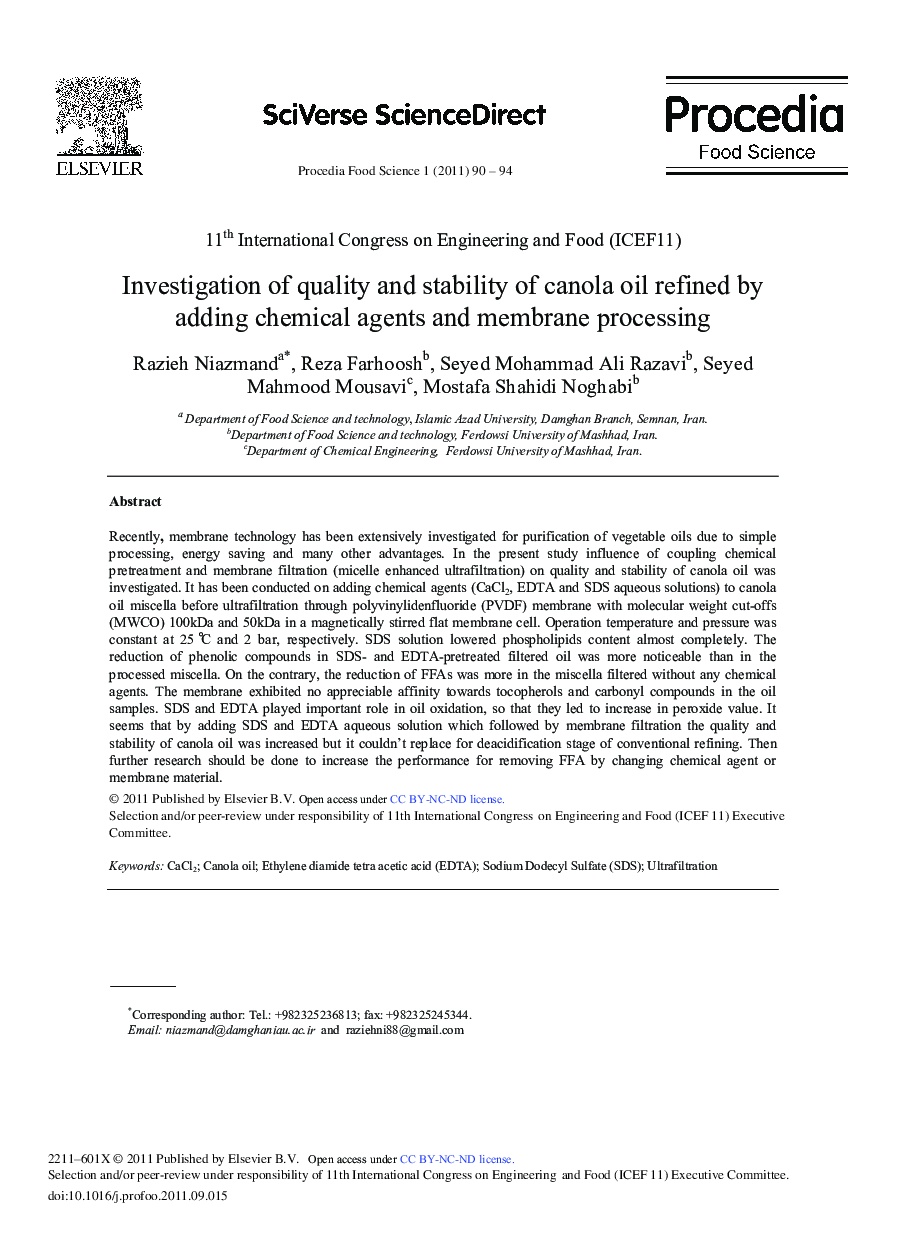| Article ID | Journal | Published Year | Pages | File Type |
|---|---|---|---|---|
| 1264923 | Procedia Food Science | 2011 | 5 Pages |
Recently, membrane technology has been extensively investigated for purification of vegetable oils due to simple processing, energy saving and many other advantages. In the present study influence of coupling chemical pretreatment and membrane filtration (micelle enhanced ultrafiltration) on quality and stability of canola oil was investigated. It has been conducted on adding chemical agents (CaCl2, EDTA and SDS aqueous solutions) to canola oil miscella before ultrafiltration through polyvinylidenfluoride (PVDF) membrane with molecular weight cut-offs (MWCO) 100kDa and 50kDa in a magnetically stirred flat membrane cell. Operation temperature and pressure was constant at 25 ̊C and 2 bar, respectively. SDS solution lowered phospholipids content almost completely. The reduction of phenolic compounds in SDS- and EDTA-pretreated filtered oil was more noticeable than in the processed miscella. On the contrary, the reduction of FFAs was more in the miscella filtered without any chemical agents. The membrane exhibited no appreciable affinity towards tocopherols and carbonyl compounds in the oil samples. SDS and EDTA played important role in oil oxidation, so that they led to increase in peroxide value. It seems that by adding SDS and EDTA aqueous solution which followed by membrane filtration the quality and stability of canola oil was increased but it couldn’t replace for deacidification stage of conventional refining. Then further research should be done to increase the performance for removing FFA by changing chemical agent or membrane material.
